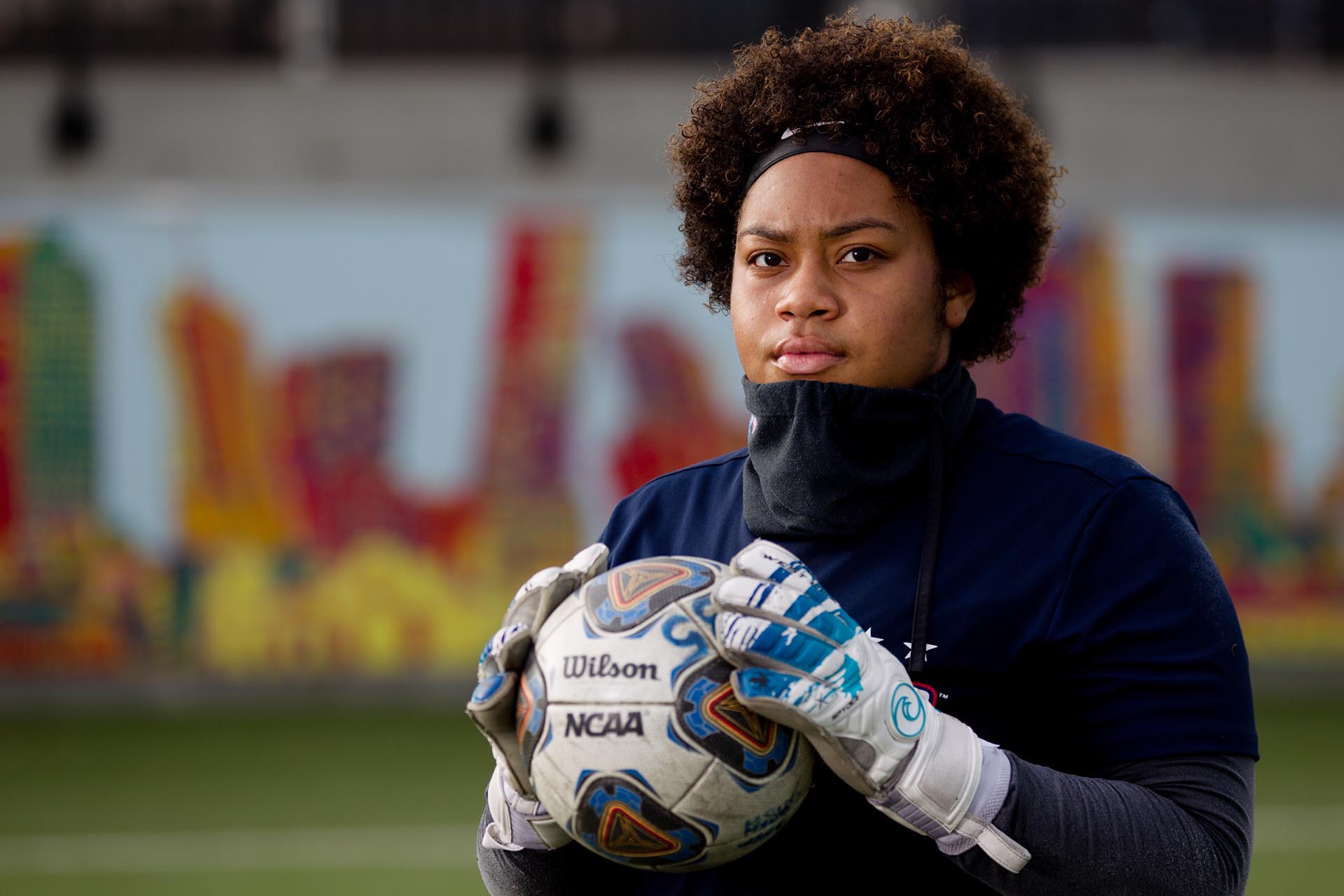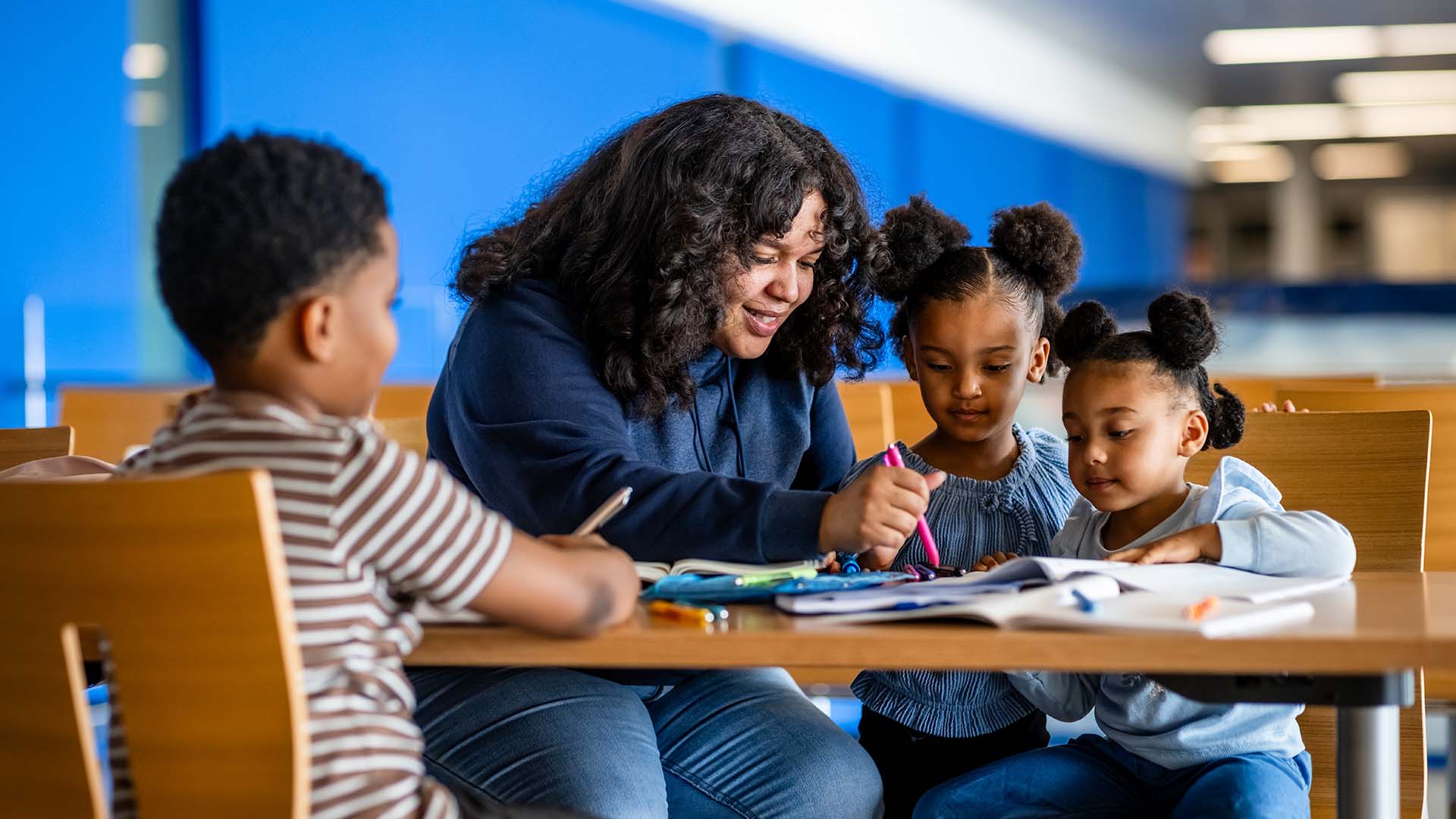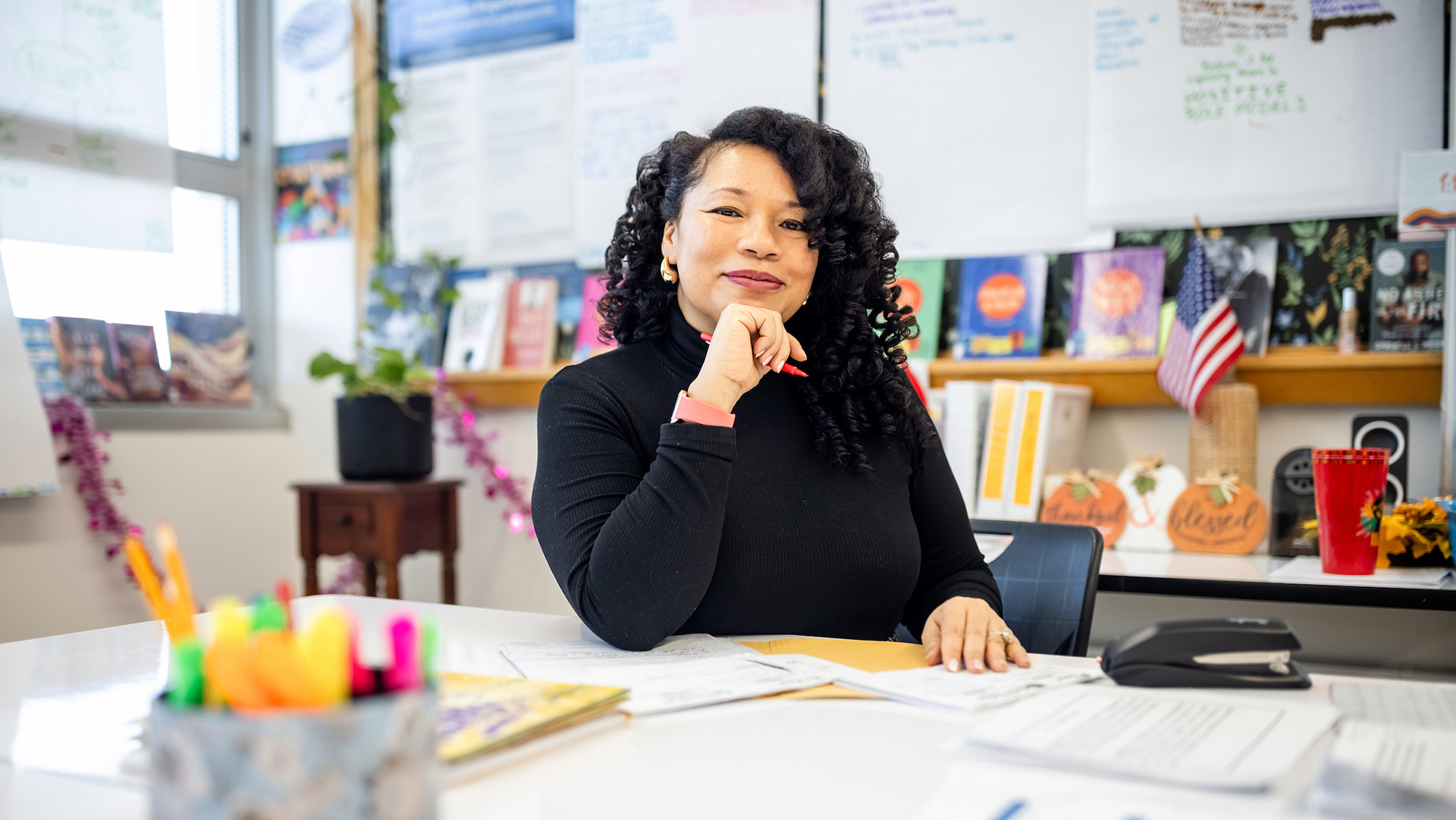What it means to be a first-generation college student
With the percentage of this population rising at MSU Denver, the University works to meet their unique needs.

The odds were stacked against Diyonus Walls, a first-generation student and Black woman who will graduate in December with a Master of Business Administration degree from Metropolitan State University of Denver.
According to the Education Advisory Board, first-generation students have a 33% chance of leaving college within their first three years, compared with 25% of students with college-educated parents. For those who make it through their first three years, 48% are on track to graduate on time, compared with 66% of non-first-generation students.
As a Black woman, Walls had only a 34% chance of earning a degree within six years of entering college. But she created her own statistic. Within six years, Walls will have completed her master’s and two bachelor’s degrees, all while playing varsity soccer.

Nationwide, first-generation students make up nearly a third of all students. At MSU Denver, that number is much higher: Nearly 60% of the University’s students identify as first-generation. MSU Denver is among the 41% of four-year institutions that use data on first-generation students to develop specialized support programs.
RELATED: First-gen forward
“I think (first-generation students) put a lot of pressure on themselves when they get to campus,” said Nhi Dang, associate director of Equity and Racial Justice Programs. “They’re like, ‘Oh, my gosh, I don’t know what to expect, but I know that I have to continue to do this because there are other people outside of my circle counting on me.’”
How first-generation students are different
First-generation college students face different challenges from their legacy peers. They take longer to finish their degrees, with 27% graduating in four years. They’re also more likely to lack financial resources and support from their families. According to the Pew Research Center, the median household income for first-generation students is $99,600, compared with $135,800 for non-first-generation students.
There are also emotional and psychological factors. It’s easy for first-generation students to feel isolated, Dang said. When their families don’t understand the demands of college, and they don’t see their experience reflected in the majority of their peers, first-generation students can feel they have nowhere to turn to ask for help.
“As a first-generation student, (I found) it’s easy to get locked into thinking, ‘Well, I just have to do this all on my own because I don’t know anybody and I don’t know where to go from here, so I’m just going to figure it out and power through,’” said student Caden Pazo, who will graduate in December with his bachelor’s degree in Theatre. “But I think that one of the most useful things was meeting other people to help navigate.”

Support for first-generation students
MSU Denver has seen a steady rise in the percentage of first-generation students it serves, from 49% in 2018 to 58% in 2022. To best accommodate this population, MSU Denver established First-Generation Initiatives in 2020, a program dedicated to wholly supporting the unique needs of these students.
Alicia Montoya, a first-generation student who will graduate with a bachelor’s degree in Political Science in December, has been instrumental in the First-Generation Initiatives program since its beginning.
As a transfer student, Montoya said she originally didn’t think about her first-generation status. She was just a regular community-college student whose parents hadn’t earned a degree. Now that she has spent two years with First-Generation Initiatives, she says that’s the kind of thinking that the program spends a lot of time trying to undo.

“A big thing we try to do is build a community around being a first-gen student,” Montoya said. “I started my journey, as I think a lot of students do, thinking, ‘Oh, well, I’m just like any other student. I just happen to be first-gen.’ But the first-generation college experience is unique.”
RELATED: Natural leader honored for outstanding achievement
The mission of First-Generation Initiatives is to raise awareness of first-generation students and to increase retention and graduation rates. The program provides leadership-development opportunities, self-advocacy workshops, employer panels, first-generation graduation ceremonies, impostor-syndrome workshops, do’s and don’ts of creating programming for first-generation students and more.
When first-generation students feel empowered and confident in advocating for themselves, Dang says, she believes that the rest will take care of itself.
“First-generation students are here to prove they belong in higher-education institutions,” Dang said. “Give them a chance to show you what they’re made of.”







